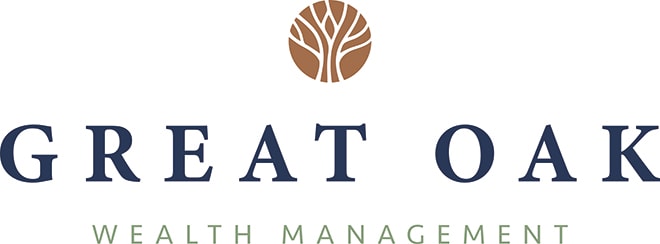Not long ago, having your mortgage paid off was a retirement right of passage, a time of celebration. However, many current and future retirees will be mortgaged well into their golden years. That can delay and demoralize retirement, but you don’t have to let that happen if you follow these 5 simple rules for managing your mortgage.
It’s easy to get sucked in
Cheap money, via low-interest rates and easy access, provides an opportunity for bad decisions. Decisions that make it unrealistic to pay off the mortgage before retirement. If you can plan for that eventuality and not just ignore it, hoping it goes away, then you can have a strategy for retirement on your terms, not the terms of your mortgage.
Rule #1: Everyone needs a roof over their head – that roof is an expense
Stop looking at your home as an investment. It’s not. The home and all the headaches that come with it are expenses. If years of principal, interest, insurance, and property taxes aren’t enough, you’ll have utilities, repairs, furnishings, and improvements. I haven’t even gotten to the outside – landscaping, driveway sealing, cutting the grass. All of those expenses, year after year, add up.
If you purchase a $300,000 home, put 20% down, and get a 30-year mortgage for $240,000 at 4.5%, you will pay $197,776 in interest over the 30 years. A total of $497,776 for your home. That’s not including insurance, taxes, or other expenses.
Of course, you have to live somewhere, and whether you own or rent will cost you. How efficiently you manage the mortgage and home equity will determine the success of your long-term cash flow.
Granted, even though I don’t want you to look at your home as an investment, it is an asset nonetheless. If you play your cards right, an asset that can help you in the future.
Rule #2: Use the discipline of a samurai with home equity
Home equity is a dangerous and powerful thing. In the wrong hands, it can unleash a financial catastrophe. I’ve seen it break many individuals.
Use and abuse
Home equity is a handy tool that can be used to get out of short-term financial jams. If you lack financial discipline, and you know if you do, the temptation to rack it up like a credit card may be too much. If that’s the case, stay away from a line of credit and stick with a fixed home equity loan.
Want to use your home equity for education loans? Don’t! Even if you haven’t saved a penny for higher education, you should not use your home equity to pay for education. The saying ‘you can borrow for education but not for retirement’ is correct. There are much better ways to fund college at less risk to your retirement (Read more in my post-COLLEGE VS. RETIREMENT: A BATTLE FOR YOUR SAVINGS IS THE WRONG APPROACH)
Rule #3: Don’t play mortgage roulette
You get a mortgage, pay it, and own your home. It sounds simple, but if you continually refinance to get a better rate, you may do more harm than good.
If you’re in year 4 of your 30-year mortgage and refinance to a lower rate, but for 30 years, you’re adding four years to the mortgage. Closing costs and the extra years of interest may defeat the purpose, depending on the interest rate. If, on the other hand, you refinance to a 20-year mortgage at a lower rate, you’re knocking years and interest off the loan. That’s a win-win.
I understand sometimes you have to take a step back to move forward. If you’re struggling every month to meet your expenses, lowering your payment may be your best option, even at the cost of more interest. It’s better than racking up credit card debt. Then the question is, will the lower payment help you save, or will you spend it? Yes, everything comes back to discipline!
There is a time and place when refinancing is appropriate. Multiple refinancings to improve your short-term situation may do long-term damage. You may need to address the underlying problem – are you living beyond your means in a financially inappropriate home?
Rule#4: The overrated tax benefit
Yes, mortgage debt is more desirable than credit card or other installment debt because if you itemize your deductions on your federal tax return, you can deduct some of the interest based on your marginal tax rate.
If you’re in the 24% tax bracket and pay $10,000 in interest, you may save $2,400 in taxes. It’s a sweet deduction, but it’s not the end-all, be-all of savings. It would be much more financially beneficial not to have the $10,000 in interest payments.
You must also remember that the tax benefit of holding a mortgage declines over time. Interest payments drop as you pay off your loan. Principle increases, interest decreases – that’s called amortization. When you’re retired, your itemized deductions may be so small, including your mortgage interest amount, that you may not even get the tax benefit.
Finally, if you choose to take the home equity loan route to help in retirement, you should know that you can only deduct interest on home equity debt of up to $100,000 ($50,000 if you’re married and file separately).
Rule #5: Pay me now or pay me later
Do I recommend having your mortgage paid off before retirement? Of course, the perfect scenario is to see the mortgage paid off in concert with the beginning of retirement. Life happens, though, and it may not be the best move.
You must pay the mortgage. Do you want it to come out of your cash flow while working or out of your savings in retirement? Pick your poison. There isn’t much wiggle room in retirement if there’s an emergency.
You have to weigh the options when it comes to paying extra on the mortgage. It may be better to save it in a retirement account. There are two sides to your balance sheet: assets and liabilities. You can’t ignore one. To reach your goals, it’s a combination of growing assets, reducing liabilities, and managing your cash flow. In other words, financial planning.
It comes down to you. Many people would rather have a root canal than debt. If you can sleep better at night knowing you have no debt, then, by all means, pay it off early.
Unlocking the asset
I touched on it earlier that although I don’t want you to look at your home as an investment, it is an asset that can help you later in life. Most people, especially those who live in a larger home, will not, and possibly cannot, maintain a home or property of that size as they age. Even if you don’t live in an extravagant home, you may want to downsize or move to a retirement community.
If you have a home without a mortgage, the equity can be used to fund that downsize, hopefully with some leftovers. It provides a valuable option that you won’t have if you carry a mortgage into retirement.
It’s tough to balance your current needs and desires with what is best for you 25 or 30 years later. The 5 simple rules for managing your mortgage should make you stop, think, and maybe even prevent you from making a decision that will hurt you in the long run.
What are your thoughts on this issue? Do you have any questions or feedback you’d
like to share? I’d love to hear your thoughts, so please feel free to leave a
comment below so we can continue the discussion.








